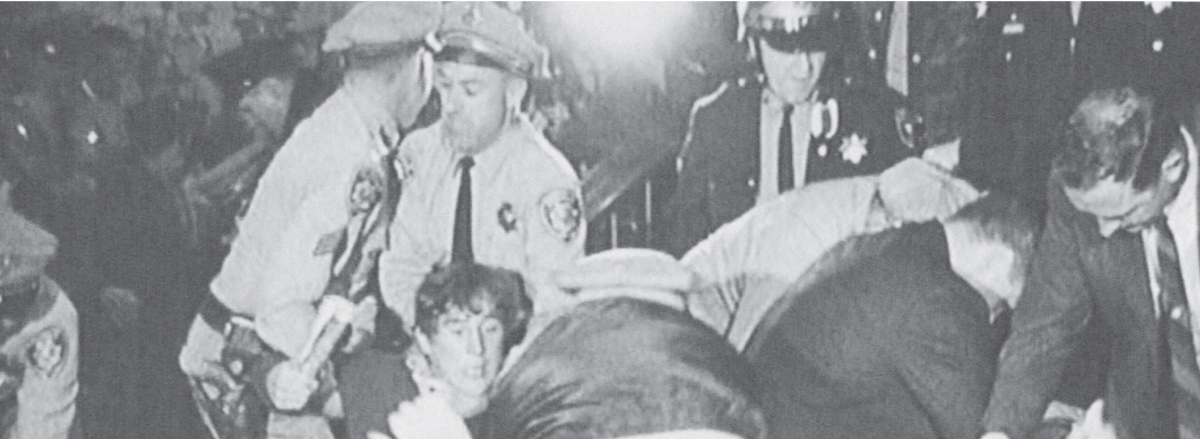July 1956
It was another hot summer night for the Smith family, living an impoverished life in the Freitas’ luxuriously furnished mansion. There was no chance of a dip in the pool since it was off-limits to us. We’d finished dinner and the little kids played around the mahogany dining table in what had become the unofficial family room. The chandelier’s reflection sparkled in the built-in glass China cupboards and the French doors that opened to the porch.
Mom was in the kitchen, loading up on wine. Dad lay on the living room couch, overweight and perspiring in his sloppy clothes, still showing signs of his last stroke, which had left him with a slipping vocabulary and slow on the uptake.
Bud and I were upstairs in our shared bedroom plotting how to get our hands on the Plymouth and sneak down the back roads to George’s Pool Hall in San Rafael. Suddenly, there was pounding at the door.
“Open up. San Rafael police.”
We looked at each other. Had someone snitched on us for lifting the four cases of beer from that careless warehouse?
We flew down the stairs to hear the loud crack of splintering wood and see the shattered glass falling around our younger siblings. Four cops, shotguns drawn, burst through the dining room’s French doors. The kids were screaming as Mom arrived from the kitchen.
“What the hell’s going on?” She yelled.
“Ma’am, shut up. We’ve got a warrant for John C. Smith.”
This can’t be happening, I thought. Why would they want Dad? He’d been Marin County’s Catholic Youth Organization Director and a G-man in WWII. He was so honest he squeaked.
Disheveled, Dad appeared, shaking his head.
“Officer, can’t we talk this over?”
“Shit, there ain’t nothing to talk about,” a potbellied cop snarled.
Mom lunged forward.
“I’m a nurse. He’s a sick man. Please don’t arrest him.”
“Get out of the way, or you’re coming too.”
“Don’t take Daddy,” Jane yelled, and Ginny joined in. Bobby was speechless, frozen by the kitchen door. Bud’s eyes were wide and I was hot with rage. A part of me wanted to pick up a chair and bust it over the cop’s head.
They surged toward Dad, his face beet red and his body shaky.
“Officers hold on. Let me call someone,” Dad stammered. “I’m sure we can straighten this out.”
“You should have thought of that before you papered the town with bad checks.”
Two cops grabbed Dad, slammed him against the wall, cuffed him and then pulled him out the door.
“Oh, no. Please,” Mom screamed.
That was the moment things got real.
Robin Hood’s Merry Men didn’t swing from the trees to thwart the Sheriff’s lackeys plundering the poor. Glinda the Good Witch of OZ didn’t wave her magic wand to turn the evil, blue-clad monkeys into guests bearing gifts.
Instead, Mom, with her tenacious, fiery spunk had challenged the cops with the same fearlessness she showed in her job as head nurse at SF General’s locked wards. She shook off the booze and sprung into action calling Dad’s influential West County friends to help defend her husband.
The charges against Dad were dropped and he was home the next day. It was nothing big, nothing worth a police raid. Dad had just postdated a couple of checks to the grocery store on Lincoln for food to feed his family.
My dream world ended. Any illusion I’d had about the affluent life we’d lived coming back vanished. We’d become white trash, living in someone else’s mansion, in a world where we didn’t belong. It was about more than the house and the stuff we’d lost.
My father had been confident, well known in San Francisco. He’d been a well-dressed, articulate man about town, the writer of a popular college fight song and famous for organizing St. Mary’s and San Francisco University parties. He’d worked for the Department of Agriculture chasing down war racketeers, and had managed my grandmother’s vast holdings. His heart attack, several strokes, and our rapid descent into poverty after we moved to Marin had a profound effect on his personality.
My storybook heroes and my dreams of returning to our privileged life disappeared. That’s when mom showed me what real life heroes did.
